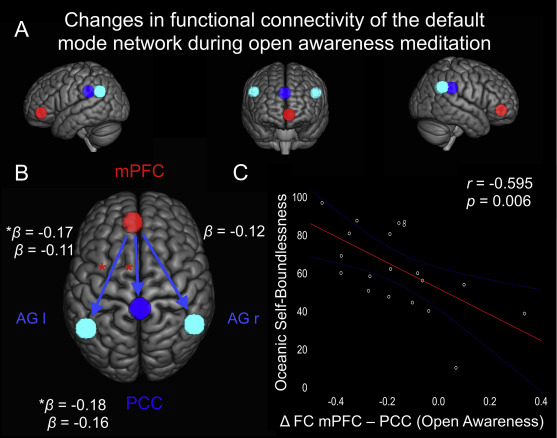
🧠 Science-Driven Techniques for an Enhanced Mind
In our current rapid-paced environment, mental acuity — marked by concentration, lucidity, emotional resilience, and memory — serves as a superpower. Whether tackling intricate work tasks or making thoughtful choices in everyday life, your brain’s capabilities largely influence your success and overall health. Fortunately, research has revealed a variety of practical methods to keep your mind sharp, nimble, and fine-tuned for contemporary living.
Here are the foremost science-driven techniques for fostering a sharper intellect — founded in neuroscience, psychology, and cognitive science.
🧘 1. Engage in Mindfulness Meditation
Consistent mindfulness meditation has been proven to structurally and functionally enhance brain performance. Studies published in Psychiatry Research: Neuroimaging indicate that prolonged mindfulness increases grey matter in key regions such as the prefrontal cortex and hippocampus — essential for memory, learning, and executive functioning.
Advantages:
– Increases the thickness of the prefrontal cortex (supports decision-making and impulse control)
– Reinforces emotional regulation pathways
– Calms the default mode network (wandering mind)
– Enhances neuroplasticity (the brain’s capability to adjust and rewire)
How to Implement:
– Begin with 5–10 minutes daily using platforms like Headspace, Calm, or Insight Timer
– Integrate mindfulness into daily activities — such as eating, walking, or doing the dishes
🛌 2. Emphasize Quality Sleep
Sleep is more than just rest — it plays an essential role in allowing your brain to consolidate memories, eliminate cellular waste, and fortify neural connections. Neuroscience suggests that memory consolidation primarily takes place during REM and deep sleep stages.
Sleep deprivation hinders:
– Attention span
– Reaction time
– Decision-making abilities
– Long-term memory
Suggestions for Improved Sleep:
– Maintain a consistent sleep schedule (including weekends)
– Avoid screens 1–2 hours prior to bedtime
– Create a cool, dark, and device-free sleeping space
🍣 3. Enhance Brain Nutrition
Your brain utilizes 20% of your body’s energy while constituting only about 2% of your overall body mass. This underscores the significance of proper brain nutrition. Numerous studies affirm that dietary choices directly influence cognitive performance.
Brain-Boosting Foods Include:
– Omega-3 fatty acids (salmon, flaxseeds, walnuts) — beneficial for memory and mood
– Antioxidant-rich berries — mitigate neuroinflammation
– Leafy greens — abundant in vitamin K, lutein, and folate
– Dark chocolate — rich in flavonoids that enhance blood circulation to the brain
What to Avoid:
– Refined sugars and trans fats
– Excessive alcohol, which can hinder neuroplasticity
🏋️ 4. Commit to Regular Exercise
Aerobic activity goes beyond physical health — it invigorates your mind. A review published in the journal Nature Reviews Neuroscience indicates that consistent exercise increases brain-derived neurotrophic factor (BDNF), a key molecule supporting learning and memory.
Benefits Include:
– Elevated mood due to endorphins
– Improved cognitive flexibility
– Enhanced memory through hippocampal neurogenesis (the creation of new neurons)
Consider:
– Engaging in 30 minutes of brisk walking, cycling, or dancing, 3–5 times a week
– Incorporating resistance training for additional advantages to memory and mood
📚 5. Acquire New Skills
Challenging your mind builds cognitive reserve — your brain’s capacity to withstand aging and neurodegeneration. According to the Journal of Cognitive Neuroscience, neuroplasticity flourishes when you are learning.
Consider:
– Studying a new language or musical instrument
– Playing strategy games or engaging in puzzles (like chess or Sudoku)
– Taking online courses in unfamiliar topics
🫂 6. Cultivate Strong Social Connections
As inherently social beings, humans thrive on relationships. Insights from Harvard’s 80-year study on adult development highlight that meaningful connections are the leading predictor of sustained happiness and cognitive wellness.
Social interaction:
– Lowers the risk of dementia
– Acts as a buffer against stress and anxiety
– Enhances cognitive flexibility and focus
Ways to Connect:
– Plan weekly video calls or gatherings with friends or family
– Participate in clubs, book groups, or online communities that align with your interests
⏳ 7. Minimize Cognitive Load through Digital Hygiene
Constant alerts, numerous browser tabs, and digital multitasking can overstimulate the brain. Cognitive load theory suggests that your working memory can only manage a limited amount of information at any given time. Overexposure to digital stimuli can lead to decision fatigue and diminished mental capabilities.
Recommendations:
– Establish boundaries with digital devices — set designated “email hours”
– Utilize focus timers such as the Pomodoro Technique (25 minutes of focused work followed by a 5-minute break)
– Monitor your screen time and avoid mindless browsing
🧠 8. Strengthen Attention through Focused Exercises
Attention functions like a mental muscle — enhance it with intentional practice. Focused attention techniques, such as breath awareness or concentrated effort, train the brain’s executive network, including areas such as the